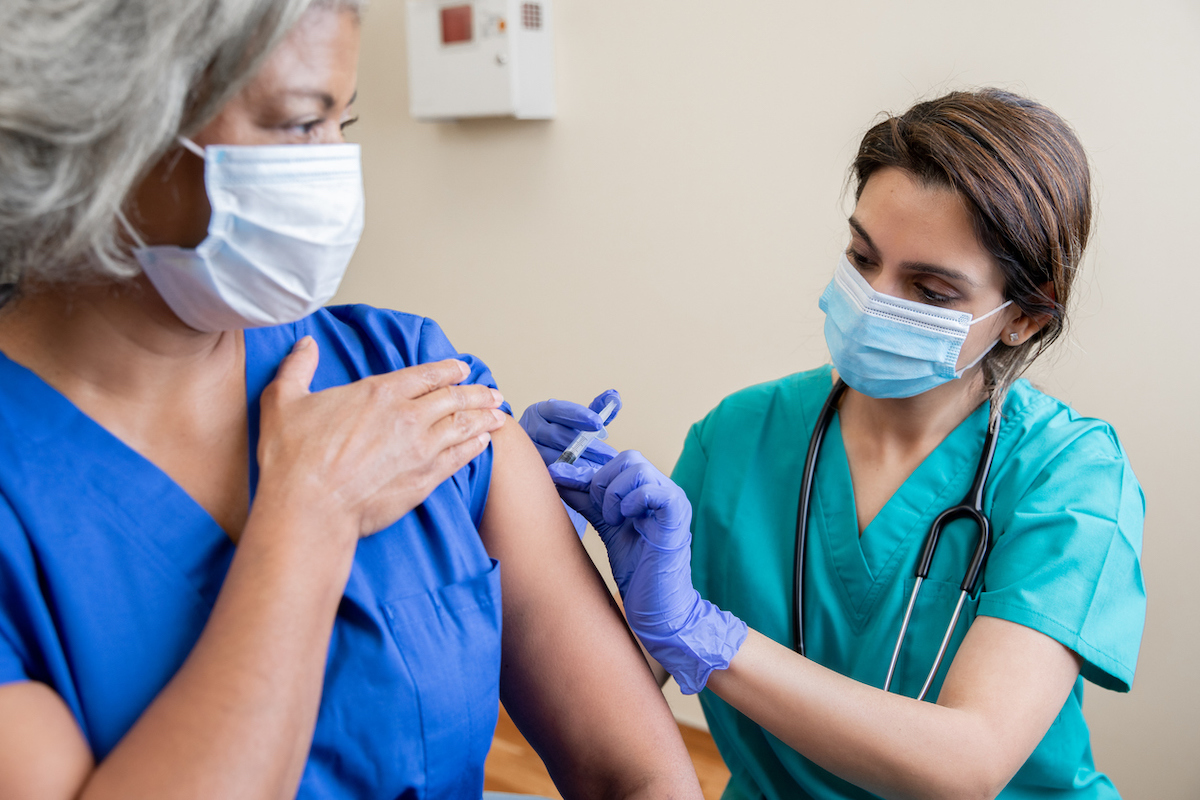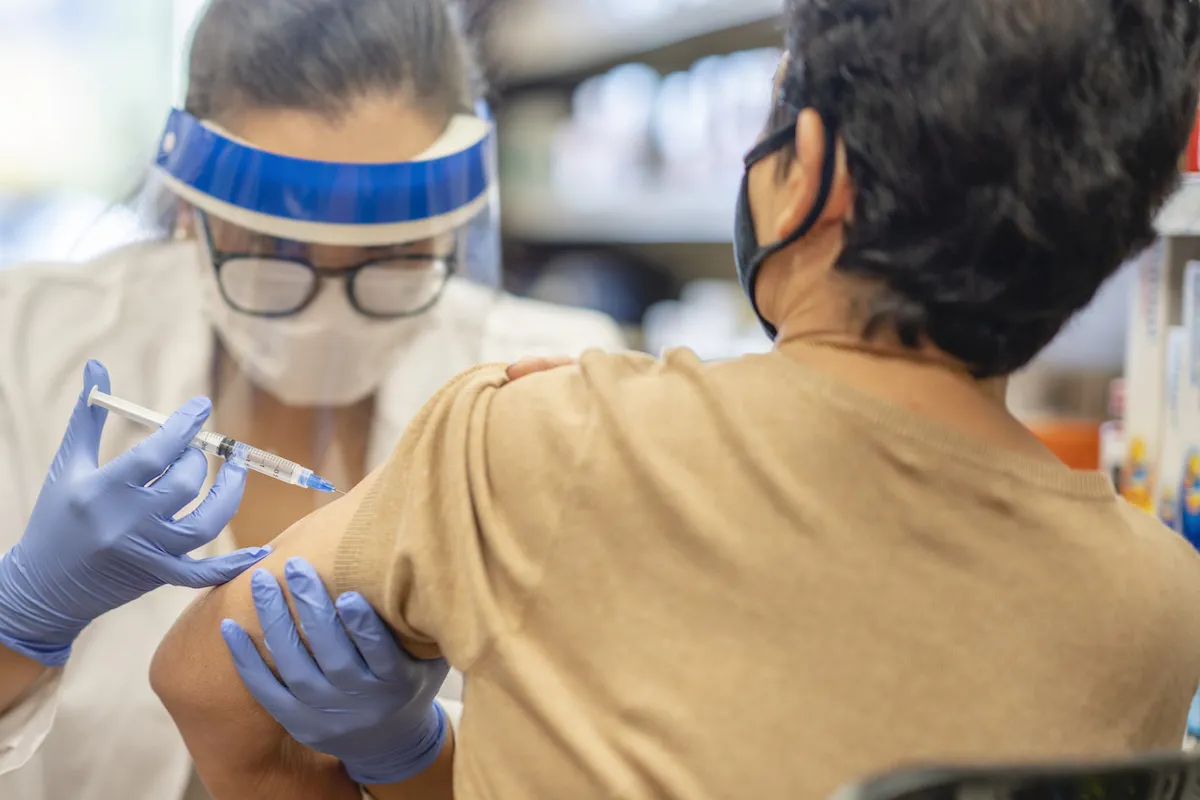However, as the process is still moving more slowly than most of us would like, debate is raging over whether it’s better to give as many people as possible their first dose, or focus on giving a smaller number both doses. White House chief medical officer, Anthony Fauci, MD, weighed in this weekend on Meet the Press, expressing his view on the hot topic of delaying that second dose. Read on to see what he advises, and for more from Fauci, check out Dr. Fauci Just Gave This Scary Update on the New COVID Strain. On Meet the Press on Jan. 31, Michael Osterholm, MD, an epidemiologist working with the White House COVID response team, suggested that prioritizing more first doses was the best way forward. However, Fauci said this week on the program that he didn’t believe the science was clear enough to advise that course of action. Clinical trials of the two approved vaccines from Pfizer and Moderna showed that the optimal approach is receiving your second shot from Pfizer 21 days after your first and your second Moderna shot 28 days after the first. While the Moderna vaccine is 80.2 percent effective after just one shot, the Pfizer vaccine is just 52 percent effective after one dose. “What we have right now, and what we must go with, is the scientific data that we’ve accumulated. And it’s really solid,” Fauci said. “You can do both, you can get as many people in their first dose at the same time as adhering, within reason, to the timetable of the second dose. It would be great to have the study, but I don’t think we could do it in time.” And to see which vaccine side effects you should view as good news, check out Dr. Fauci Says These 2 Side Effects Mean Your COVID Vaccine Is Working. On Feb. 2, during a live Twitter event with The Washington Post, Fauci said there is a danger with delaying second doses. “If you have sub-optimum efficacy, you could, in fact, paradoxically be selecting for more mutations. That’s the danger there,” he explained. “It’s taking a chance.” While Fauci didn’t elaborate on that point, some medical experts have expressed concern that putting off second doses—and therefore delaying the vaccine’s maximum potential protection—could give the virus time to mutate again and potentially evade the vaccine by the time those second doses are finally administered, Business Insider points out. And for more up-to-date COVID news delivered straight to your inbox, sign up for our daily newsletter. The CDC’s stance on the subject is that expanding the window between vaccines should only happen in exceptional circumstances. In a Jan. 22 update to its vaccine guidelines, the CDC said, “The second dose should be administered as close to the recommended interval as possible.” However, “if it is not feasible to adhere to the recommended interval, the second dose of Pfizer-BioNTech and Moderna COVID-19 vaccines may be scheduled for administration up to six weeks (42 days) after the first dose. There are currently limited data on efficacy of mRNA COVID-19 vaccines administered beyond this window.“ae0fcc31ae342fd3a1346ebb1f342fcb So, it’s more of a worst-case scenario situation than a recommended tactic, according to the nation’s leading health agency. And for more on what not to do post-dose, find out why Dr. Fauci Says Doing This After Getting Vaccinated Is a Huge Mistake. After a shaky start in early December, the rate of vaccination is increasing. President Joe Biden’s stated aim to hit 100 million jabs in his administration’s first 100 days in office is getting up to speed. Even to reach the administration’s more ambitious target of 150 million, they need to be averaging about 1.6 million doses per day: NBC’s newest numbers show us just shy of 1.3 million daily doses, while Bloomberg’s latest data is tracking slightly higher at 1.46 million doses per day as of Feb. 7. While on Meet the Press, Fauci expressed confidence that the current rate of vaccination was picking up, citing an increased supply of currently available vaccines, plus upcoming ones like the Johnson & Johnson variety, which is currently awaiting emergency use authorization from the Food and Drug Administration (FDA). “If you look at the escalation of the availability of doses purely on the ability and capability of manufacturing that, it’s going to escalate and will continue to escalate as we go from February to March to April and beyond,” he said. “Even though there’s a clear, clear discrepancy between the demand and supply, that will get better.” And for more on the latest vaccine news, check out You May Soon Need a COVID Vaccine to Do This One Thing, Officials Say.

